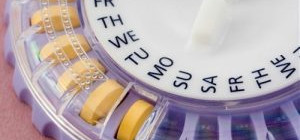 Being told you have cancer is one of the worst experiences you can go through. However, being told too late – when you’ve had your cancer misdiagnosed – is worse.
Being told you have cancer is one of the worst experiences you can go through. However, being told too late – when you’ve had your cancer misdiagnosed – is worse.
Cancer is misdiagnosed for a multitude of reasons. From symptoms giving the impression that you’re suffering from another illness to inexperienced medical staff, from faulty testing equipment to a mix up with your results, the potential for a misdiagnosis occurring can come from almost anywhere.
This kind of misdiagnosis is something that has happened too often and reflect one of the worst breaches of trust possible.
Ensure you get a second opinion
You may have a suspicion that you are suffering from cancer. When you report this fear to your doctor and they tell you that you don’t have the disease, you may be relieved – even overjoyed. But the treatment they recommend doesn’t diminish your symptoms and you find that you’re confronted with that familiar fear of cancer.
So you return to your doctor but they still don’t entertain the idea of cancer. This is when you need to seek out a second opinion. Your health is more important than respecting a doctor’s opinion. You may consider it appropriate to request new or different tests after your doctor has told you that it isn’t cancer.
Medical negligence in the form of a cancer misdiagnosis is a heart-breaking error – and not something you should ever have to deal with. But it shouldn’t mean the end of your fight.
To give yourself the best chance of beating cancer, you need an early diagnosis. The sooner you can get your doctors to take you seriously and get the right tests done, the sooner you can start to fight the disease.
Get the right treatment
When you’re facing a cancer diagnosis, whether you’ve been given the right diagnosis early on or whether you’re trying to get your life back on track after being misdiagnosed, you will need to take good care of yourself.
When dealing with doctors, you might feel like you should just listen to whatever they tell you. But it’s advisable to be as involved as possible in the decision-making. It’s your life that will be affected by your treatment, after all.
You might want a second opinion on your treatment plan. There are many approaches to treating cancer that one doctor may have an entirely different perspective on it to another. A second opinion can help you either decide to consider your options or convince you that the first suggestion is indeed the way to go.
It is completely understandable that you might fall apart for a while after the diagnosis. But there are resources you can access to make your journey slightly easier. If you’re based in the UK, Macmillan Cancer Support provide the support you need to help you through. Meanwhile, the American Cancer Society and the National Cancer Institute in the US can provide you with trustworthy information to help you make the right decisions for you.
Find a good level of support
Going through cancer is a hugely stressful and emotional time. This is why having the right support is invaluable. Having someone you can rely on to attend medical appointments with you can help make the process easier and less daunting. A spouse, child or close friend could fill this role for you.
Having someone there with you means you have someone else to hear what the doctors say. This will help ensure you don’t miss any important information. Ask your loved one to make notes on what they take from the appointment. You can then combine these with any notes you take yourself, giving you a more comprehensive overview of what was discussed.
A support network also gives you someone to talk through how you’re feeling and what you’re going through. As it is such an emotional time, this can be one of the most important aspects of coming back stronger after a cancer misdiagnosis.
You may also decide that you want to address your cancer misdiagnosis in a formal legal manner. The right support is vital here. A specialist lawyer can help you take on the healthcare provider that gave you the wrong diagnosis, highlighting what went wrong in your case and therefore helping to reduce the chances it will happen to someone else.







